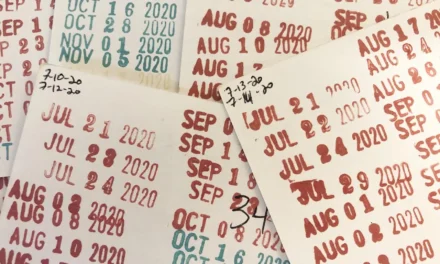
Praying in Public

I remember as a young adult and new to the Christian faith, that our particular brand of church prayed and worshipped with their hands lifted up. Looking around, I saw that those who were most connected with whatever was going on, lifted both hands toward the ceiling.
I didn’t understand the Biblical reasons for lifting up my hands, but I remember knowing that it was something that was done at church and I should do it also.
Lifting my hands during worship was a challenge. With my arms in the “I surrender,” ‘u’ shape, my weak triceps were pushed beyond their limits within a minute or two. I could feel the burn.
Why did I struggle to keep my hands up? I thought that this posture was what I needed to do, not something that I wanted to do.
I eventually develop some muscles and some understanding about the importance of lifting your hands to God in physical worship.
Thinking about this as a mature Christian, I realize that I was, initially, lifting my hands because it made me fit in with everyone else. I cared what other people thought about me during my worship.
Jesus confronts this in the lives of his followers in Matthew 6.
The Hebrews also worshipped together in a large group. Their worship was physical and vocal and Jesus knew that most of them would pray out loud. He also knew that many of them were more concerned about how they looked in front of people, more than how they lived in front of God.
Matthew 6v1
“Beware of practicing your righteousness before men to be noticed by them; otherwise you have no reward with your Father who is in heaven.”
Jesus was teaching his disciples and those who followed Him that they needed to be conscious of how they practiced their godly living. His followers were to be careful how they represented their faith and actions, especially in public.
Jesus continues to expand what He means, by checking your public displays of worship:
Matthew 6v2-4
“So when you give to the poor, do not sound a trumpet before you, as the hypocrites do in the synagogues and in the streets, so that they may be honored by men. Truly I say to you, they have their reward in full.
“But when you give to the poor, do not let your left hand know what your right hand is doing, so that your giving will be in secret; and your Father who sees what is done in secret will reward you.
Notice how Jesus says, “when you give,” not “if you give.” Generosity flows from a life that has received the generous gift of Life in Christ Jesus. Giving is not the problem. The issue at hand is our motives for giving. Do we want to be seen by God or seen by our peers?
Jesus was saying, that a generous life will get noticed, but you really want God to notice. God notices your generosity when you share it between Him and yourself. Generosity is an intimate action that God wants you to keep between Him and you.
For many years, I took these verses to the extreme by associating praise with pride. I tried to avoid any praise for any good thing that I did. I used to tease leaders who told me what a great job I was doing for the Lord, saying, “Did you hear that sound? It’s the sound of my reward in heaven being taken away.”
Most didn’t get my dry sense of humor, but I was saying that by praising my good work, I was losing a reward from God. I was really trying to deflect pride from taking hold in my heart, but there was a true sense in knowing that, my “Father who sees what is done in secret will reward you.”
Matthew 6v5-6
“When you pray, you are not to be like the hypocrites; for they love to stand and pray in the synagogues and on the street corners so that they may be seen by men. Truly I say to you, they have their reward in full.
“But you, when you pray, go into your inner room, close your door and pray to your Father who is in secret, and your Father who sees what is done in secret will reward you.
I am convinced that so many preachers, with good intentions, have used this verse out of context to teach that Christians should look for a quiet place to pray and separate place to pray.
Even though there is truth in a quiet, separate place, (and a great thing to have) but the context of this verse is about public worship and our attitude with how people view our public worship.
In other words, verse 6 is more about attitude than location.
What is public worship?
Public worship is any external expression that can be seen by non-Christians and sometimes Christians. Since our faith requires “works” as an evidence of a life transformed, doing good works must happen under the scrutiny of anyone.
Financial giving, praying in public, singing at church and even volunteering can be part of your public worship to God. If you give your worship to God with pure motives, God will accept those acts of worship.
However, there is a risk of pride when putting your piety on display and Jesus tells us how to remove the risk.
Matthew 6v7-8
“And when you are praying, do not use thoughtless repetition as the Gentiles do, for they think that they will be heard because of their many words. So do not be like them; for your Father knows what you need before you ask Him.
First, don’t act like the Gentiles. The Gentiles are the group of people who practice a form of religion, but are living apart from true faith in Jesus Christ. A Gentile is a person that thinks that their good works will buy them entrance into God’s favor.
Secondly, don’t be thoughtless in your prayers. When you pray, let God fill you with the words you should pray. It isn’t magic. If you have been spending time with God in private then your public prayers should reflect your private time.
Lastly, remember that God knows what you need before you ask Him. Many people ask, why ask God if He already knows what we need. Sometimes we can take on the wrong posture before God and make Him out to be a strange person.
One of the most frustrating things for me is when someone asks me a question and they already have the answer. I grow suspicious of their motives—are they trying to trick me, or are they trying to make fun of me.
If you were in school and your teacher said to you, “Do you have any questions?” you wouldn’t feel like she was trying to trick you. Just because they have the answer doesn’t mean that we don’t have to ask to get the answer.
That is what it is like with God. He wants us to ask Him for things that He already knows we need. He wants to include us in the process of asking and receiving so that our heart motives will stay right.
The Bible is filled with many more examples of how our public worship should be done in humility. This passage reminds us that God is concerned about our attitudes in the things we do, everyday.











Recent Comments